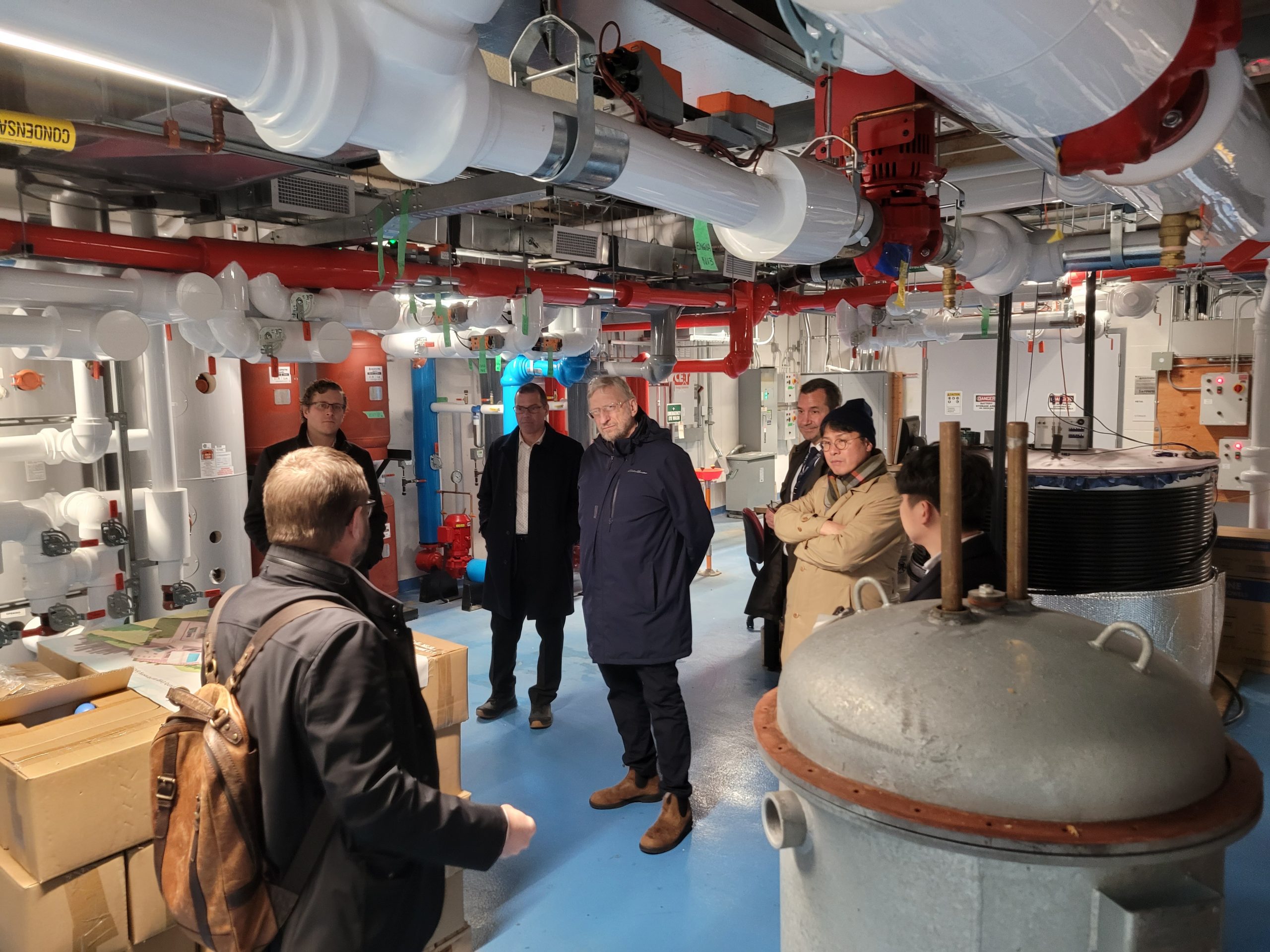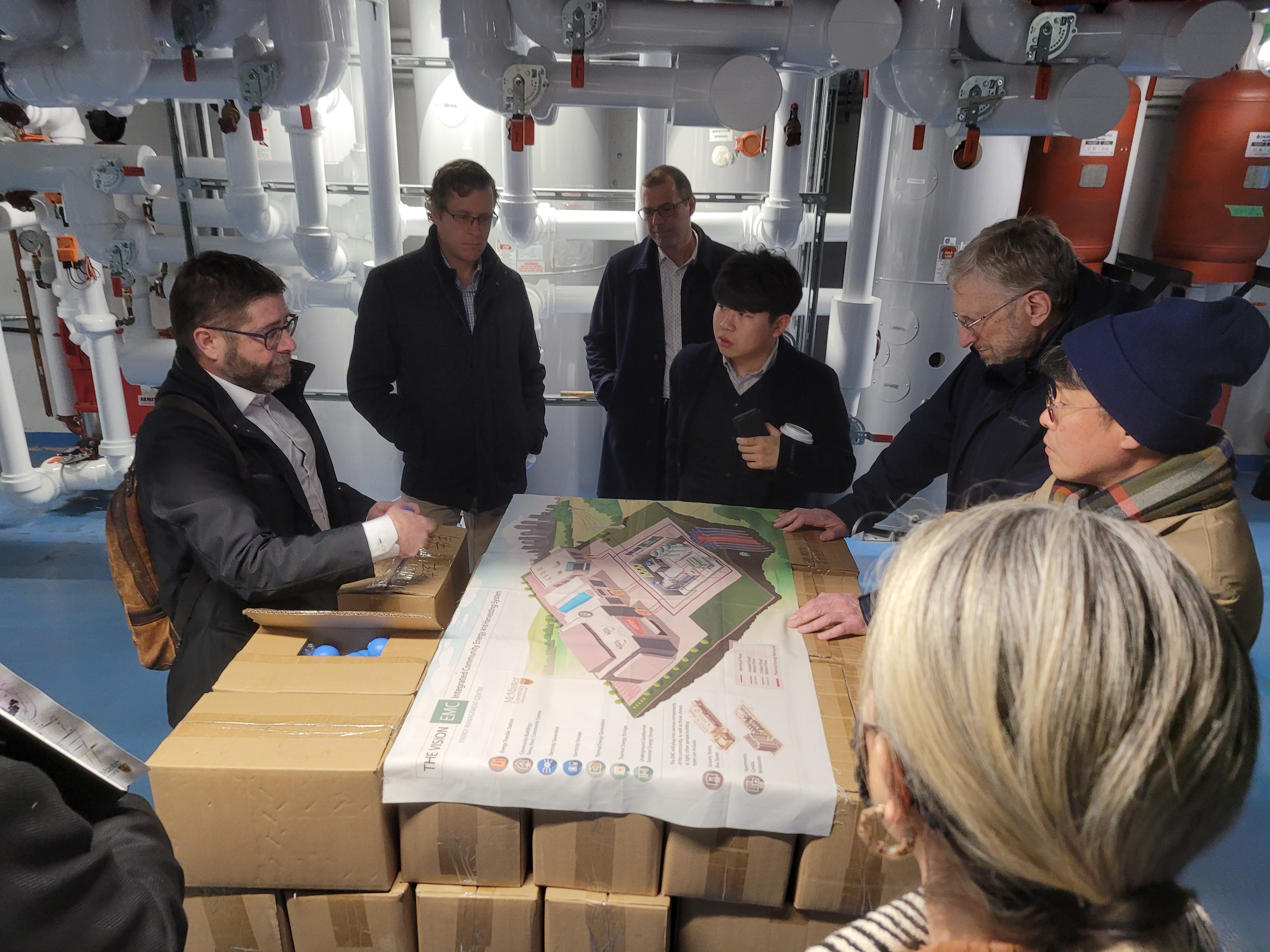McMaster and partners embark on Micro-Modular Reactor feasibility study

McMaster welcomed leaders from Ultra Safe Nuclear Corporation (USNC), Global First Power (GFP), and Hyundai Engineering Corporation to campus last week for discussions surrounding the University’s Micro-Modular™ Reactor (MMR®) deployment vision and tours of McMaster’s cutting-edge nuclear and integrated community energy research facilities.
Last spring, McMaster, USNC and GFP announced their plan to conduct a feasibility study to explore the potential of deploying USNC’s Micro-Modular Reactor at McMaster or an affiliated site.
MMRs produce low-carbon energy that can be used to power communities sustainably. As part of McMaster’s MMR Deployment Feasibility Study and in collaboration with experts from USNC and GFP, researchers across disciplines are engaged in studies related to micro-reactor design, development, safety and public acceptance.
Dave Tucker, McMaster’s assistant vice-president, research (nuclear), says momentum behind the study is building as the partners make headway in the planning process.
“McMaster’s MMR vision is coming to life as we collaborate with our partners on this first-of-a-kind project. We are exploring the feasibility of building an MMR at McMaster that will act as a key resource and demonstration centre for training and education and for communities across Canada who are hoping to learn more about this clean energy technology,” he says.
USNC and GFP are currently working with Canadian Nuclear Laboratories to deploy Canada’s first MMR at Chalk River, which is expected to be operational later this decade.
Francesco Venneri, CEO of USNC, says the McMaster MMR could also be one of the first deployments in Canada.
“We are excited to be working with McMaster to investigate a pathway for deployment and turn their unique MMR vision into a reality that will inspire net-zero solutions for all communities across Canada and provide training for the next generation of leaders in the nuclear industry,” he says.
Tucker led a tour of the Centre for Advanced Nuclear Systems, where researchers conduct testing on nuclear power plant components and materials, and James Cotton, mechanical engineering professor and co-director of the McMaster Institute for Energy Studies, led a tour of the Integrated Community Energy and Harvesting Systems (ICE-Harvest) Experimental Facility at the Gerald Hatch Centre.

The ICE-Harvest system will give communities access to heat that is produced as a by-product of distributed energy resources, decreasing the amount of extra natural gas that is normally burned in buildings for heat. McMaster’s nuclear research team is working with Cotton to explore ways to integrate ICE-Harvest with micro-reactors to create a truly carbon neutral energy production and utilization solution.
Over the next few months, McMaster, USNC and GFP will complete the feasibility study and the University will make a decision about the potential for deployment. A decision to proceed would initiate a broad range of consultation and engagement around a potential MMR deployment at McMaster by 2030.
News - Health Physics McMaster